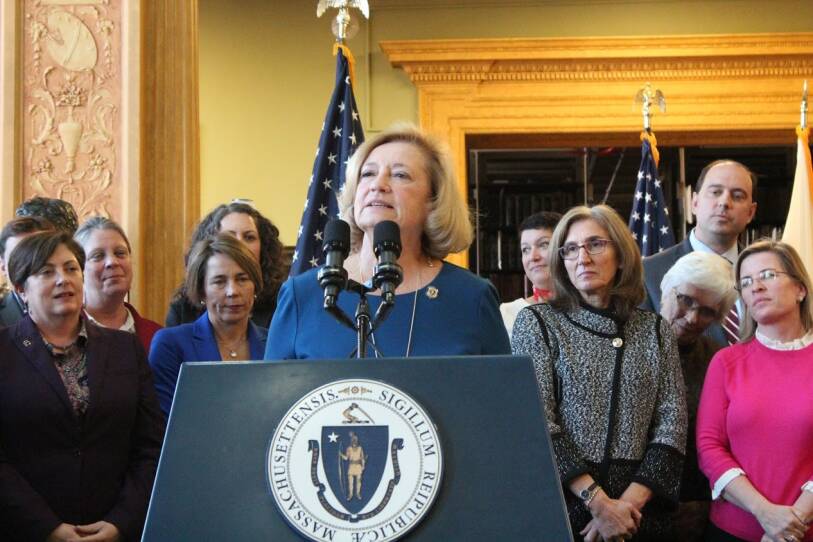Just after signing a bipartisan bill requiring health insurers to cover contraceptives without a copay, Gov. Charlie Baker looked up to distribute commemorative pens to the group of female lawmakers surrounding the parchment.
"This was an easy one," Baker said as he finished handing out the handful of pens. Baker could just as easily have been referring to his decision to sign the bill itself, which passed both chambers with minimal conservative opposition and aligns with Baker's commitment to maintain the level of access to women's health care the state's women enjoy under the Affordable Care Act.

"If Washington is going to be hostile toward programs and policies that we know work, then we need to be prepared to protect them," Senate Majority Leader Harriette Chandler, long a champion of such a mandate, said after Baker made it law.
The Trump administration is letting a similar provision in the ACA expire, ending the federal mandate that insurance cover contraceptives and related doctor's visits without a copay.
The new law institutes a state mandate for insurers to provide contraceptives after the state's influential insurers lobby agreed to take on the coverage. The bill was pushed hard by lawmakers on Beacon Hill through the final days of the 2017 Legislative session and was seen as a way to brunt some of the impact President Donald Trump's health care policies are having in Massachusetts.

"This was one of those items that, yes, it became a priority not just because of what it does, but because of the potential for things to change dramatically for the women of Massachusetts," House Speaker Pro Tempore Patricia Haddad said.
In his budget bill from earlier this year, Baker proposed a moratorium on all new health insurance mandates as a way to tamp down the rising cost of premiums.
That moratorium would have made it harder to get the contraceptive mandate, the bill Baker just signed, into law. The Democratic Legislature did not adopt Baker's moratorium when they passed the final budget.
Baker said halting all new insurance mandates can be a useful tool to know how they would impact premiums. Analysts predict the new mandate could cost premium payers as much as $2.40 annually.
"But in this particular case there was a tremendous amount concern about a particular issue that involved the uncertainty associated with federal policy and I think it's terrific that everybody got together and got this done to protect women's reproductive rights here in Massachusetts," Baker told reporters after signing the bill.
Baker has maintained a clear policy of ensuring access to women's health care that may become threatened by shifts in federal policy, including commitments to use state funds to replace cuts to women's health programs.
"This legislation will ensure that no woman in the Commonwealth of Mass, irrespective of whatever goes on in Washington will have to worry about whether or not her healthcare services and rights will be protected here in the Commonwealth, and this is a very good thing," Baker said.





